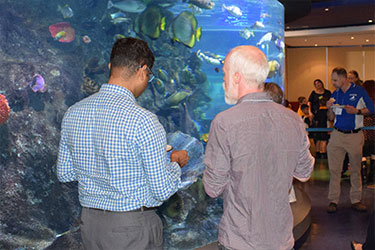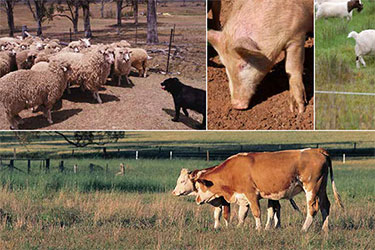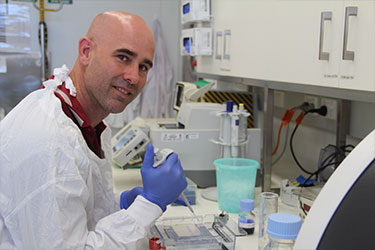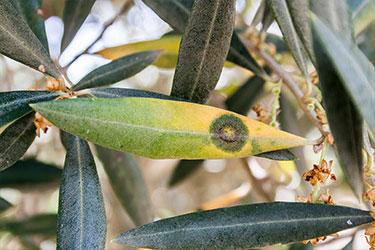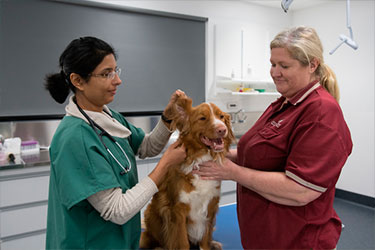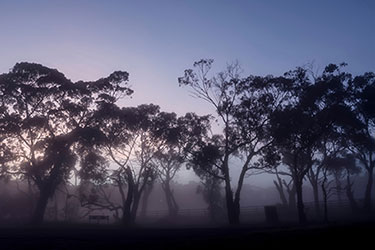Biosecurity is the management of the risk of pests and diseases entering, emerging, establishing or spreading in Australia and causing harm to animals, plants or human health, the economy, the environment and the community.
More cancelled visas: the perils of not declaring what you’re carrying
Pork meat products packed in luggage could bring the devastating pig disease African swine fever to Australia.
In our previous edition we told you about the first visa cancellation under Australia’s biosecurity laws. Now 5 more visas have been cancelled, sending incoming visitors to Australia back home for putting our valuable agricultural industries and natural environment at risk.
Two-thirds of the cancelled visas to date have been due to passengers failing to declare pork and pork products, such as ham, salami and sausages. One passenger from Vietnam arrived with their luggage packed with almost 4 kilograms of pork-filled mooncakes.
Head of biosecurity Lyn O’Connell said that while all animal and plant products brought into Australia that do not meet our import requirements could pose a biosecurity risk, pork in particular currently presents a significant risk.
‘African swine fever is devastating the pork industry across the world, and it can enter a country in pork meat products. Just one passenger’s luggage could cause millions of dollars of damage to our agricultural industry,’ Ms O’Connell said.
Continue reading about more cancelled visas: the perils of not declaring what you’re carrying
‘We’re doing everything we can to keep this disease from entering Australia. Preventing a visitor from entering the country may seem like a tough step to take, but by cancelling the visas of these 6 people we are sending a strong message that undeclared and illegal food imports will not be tolerated.’
A recent round of testing found that nearly half of pork products seized at Australian airports during the testing period were positive for African swine fever.
If any contaminated pork products ended up being eaten as leftovers by pet pigs or hobby farm pigs—or by feral pigs eating from landfill—the disease could get a foothold.
A quarter of the world’s pigs have died due to African swine fever, and there is no vaccine or cure.
‘Everyone entering our country is asked to declare whether they have any food, animal or plant products, or any other material that might be a biosecurity risk,’ Ms O’Connell said.
‘This goes for both visitors to our country and Australians returning home from overseas.
‘All we ask is that you know what you can bring in before you pack, and fill in your Incoming Passenger Card truthfully when you get here.’
Find out more about your responsibilities when travelling to Australia.
Experts meet at Environmental Biosecurity Roundtable
The SeaLife Aquarium in Melbourne was the setting for a day of presentations and updates on environmental biosecurity.
Wildlife health surveillance, community-led rabbit management and the contribution of citizen science to research outcomes were high on the agenda at the seventh Environmental Biosecurity Roundtable in October at the SeaLife Aquarium in Melbourne.
Hosted by our Environmental Biosecurity Office, the event attracted over 80 participants and another dozen who joined virtually, representing all three levels of government, non-government organisations, researchers, consultants, practitioners, community groups and industry.
The day featured presentations and updates from across government agencies, research and technology developments and on-ground programs.
Australia’s Chief Environmental Biosecurity Officer Ian Thompson said that the breadth of the presentations made it a day full of highlights.
Continue reading about experts meet at Environmental Biosecurity Roundtable
‘The What’s New short presentations are always a favourite. This year they covered issues as diverse as wildlife health surveillance, emerging technologies, citizen science and fish translocation,’ Mr Thompson said.
‘The longer presentations on the day included ones on illegal wildlife trade, plant health surveillance, marine pest management, general surveillance pilots using the extensionAUS platform, and community-led rabbit management.’
Participants contributed to the development of communication strategies to support early detection and reporting of the species listed on the Interim Priority List of Exotic Environmental Pests and Diseases.
‘Over the years we have witnessed a substantial increase in attendees and growing unity to support environmental biosecurity,’ Mr Thompson said.
‘Attendees value these events for the networking opportunities, learning about a diverse range of topics, and the opportunity to engage with decision-makers and other key stakeholders.
‘It is always a pleasure to see many repeat attendees as well as welcoming new faces.’
The next Roundtable will be held in Canberra in April–May 2020. Find out more and read reports on previous Roundtables at our environmental biosecurity webpage.
New field guide to help detect and report emergency animal diseases
A new field guide for emergency animal diseases will help vets in safeguarding our environment and agriculture.
A new resource to help Australian vets get on the front foot and quickly identify emergency animal diseases is now available.
The field guide provides information on important animal diseases and syndromes that do not exist in Australia or that are rare.
It was developed to help vets identify emerging and emergency animal diseases and take appropriate action when confronted with unusual signs of disease in the field.
Head of biosecurity Lyn O’Connell said that it is important that vets can identify priority risk diseases to Australia, such as African swine fever.
‘Early identification and reporting is critical to minimise the harm these diseases can pose,’ Ms O’Connell said.
‘Vets play a critical role in biosecurity by protecting the environment and human health from problems associated with pests and diseases of animals.
Continue reading about new field guide to help detect and report emergency animal diseases
‘They are on the front line for exotic animal diseases, so it’s important they have the tools for early identification and reporting.
‘Australia exports over 65% of what we produce. Emergency animal diseases can stop our ability to trade, so vets play an important role in maintaining our market access.’
While the field guide currently covers a lot of emergency diseases, more will be added to this resource. The guide will be regularly updated and reviewed as new threats emerge.
The field guide was produced by the Department of Agriculture and Australia’s Animal Health Laboratory.
Find the field guide on the Outbreak website.
Biosecurity operations group profile: weeding out the pests that could spread serious animal and plant diseases
The Science and Surveillance Group delivers pest and disease surveillance, and other programs, contributing to Australia’s biosecurity strength.
Our operational capability is supported by 7 specialist groups, each overseeing a critical aspect of biosecurity. Starting last edition, we have been profiling one of these groups in each edition of Biosecurity Matters.
The Science and Surveillance Group (SSG) contributes to Australia’s favourable animal, plant and environmental health status.
The SSG has a national focus in providing pest and disease diagnostics, regulatory advice, training and technical input into biosecurity policy. It also regulates biosecurity activity for the Torres Strait risk pathway and undertakes diverse surveillance and diagnostic services around Australia, such as conducting targeted animal and plant health surveillance.
The group’s functions are delivered through three operational programs:
- Operational Science and Surveillance (OSS)
- National Border Surveillance (NBS), part of OSS, which undertakes regional vector monitoring operational programs
- the Northern Australia Quarantine Strategy (NAQS), the work of which forms the foundation of northern Australia’s ‘early detection system’ for the presence, or absence, of exotic animal and plant pests and diseases.
Continue reading about biosecurity operations group profile: weeding out the pests that could spread serious animal and plant diseases
Head of SSG Wayne See Kee elaborated on the core functions of each SSG program.
‘The OSS team facilitates effective biosecurity and export certification processes through providing scientific advice and innovation solutions across a range of operational and policy areas,’ Mr See Kee said.
‘OSS also provides timely diagnostic and risk assessment advice for pests and diseases that are detected at first points of entry and post-entry plant quarantine, along with guidance on treatments and other risk mitigation measures.
‘Importantly, they provide identification of insects, seeds and plant pathogens that are crucial for analysing and understanding border interception trends that inform biosecurity policy.’
OSS is made up of over 40 scientists throughout Australia with expertise in entomology, botany, plant pathology and molecular biology.
OSS scientists identify more than 45,000 pests, seeds and plant pathogens that have been intercepted at the border each year, as well as identify and help to manage approximately 35 significant border detections of high-risk biosecurity pests per month.
Mr See Kee said that NBS officers work with OSS scientists to contribute to Australia’s national biosecurity effort through surveillance for exotic pests, weeds and diseases.
‘NBS officers sample, record and identify insect and plant species around international first ports of entry—such as international airports and shipping ports—as well as facilities under approved arrangements, where the risk of incursion of exotic pests, diseases and weeds is higher,’ he said.
NAQS—who operate in Cairns, the Northern Peninsula Area of Cape York and Torres Strait in Queensland, Darwin in the Northern Territory and Broome in Western Australia—have recently celebrated 30 years of collaborative biosecurity in the north of Australia.
They provide early detection of target exotic pests, diseases and weeds across northern Australia that may affect Australia’s national plant and animal health status, our trade in agricultural products and our distinct environment.
‘Pest and disease surveillance is essential in providing proof of freedom to our trade partners,’ Mr See Kee said.
‘The NAQS program delivers a range of services and operations in the north. These include scientific surveys both on and offshore, some in collaboration with the department’s Biosecurity Plant Division.
‘NAQS engages Indigenous Rangers who assist in biosecurity surveys, collect data and perform trapping services under direction from NAQS scientists and Community Liaison Officers.
‘NAQS connects with communities in the north, raising awareness on reporting exotic target species and complying with biosecurity regulations.
‘As an integral part of SSG, NAQS also contributes expertise to national policies, industry measures and research relating to plant, animal and aquatic health surveillance.
‘In Torres Strait, NAQS manages risks in accordance with Torres Strait biosecurity regulations and delivers surveillance and response measures under the Exotic Fruit Fly in Torres Strait Response Plan.’
Make sure you are subscribed to Biosecurity Matters to find out more about our specialist groups in the next edition.
Next steps: National Priority List of Exotic Environmental Pests and Diseases
Xylella is a devastating plant disease—one of more than 40 threatening pests and diseases on the National Priority List.
In our last edition we featured the National Priority List of Exotic Environmental Pests and Diseases.
Since early September our Environmental Biosecurity Office has been consulting stakeholders about the list, following the release of an interim list.
We received over 50 responses from governments at all levels, non-government organisations, academics and local groups/landholders.
We were particularly keen to hear how the list could be implemented. Most suggested it could be used for general surveillance, followed by awareness raising and communication.
There was a fair spread of interest across the 8 different taxonomic groups, with the weeds and freshwater algae group receiving most interest, and the freshwater invertebrates the least.
Continue reading about next steps: National Priority List of Exotic Environmental Pests and Diseases
Consultation within the department is still ongoing, but opportunities for using the list have been identified across prevention, preparedness, surveillance, diagnostics, response and communication.
We are also continuing to consult with external stakeholders, including representatives from state and territory governments and a number of non-government organisations, about ensuring a strategic approach to implementing the list. The information is being used to develop an implementation strategy.
Find out more about the list and its development process.
$10 million battle against pests and weeds
The Australian Government is investing $10 million in programs to tackle pest animals and weeds for farmers and communities in drought conditions.
Pest animals and weeds are a burden for our famers and farming landscapes, especially during drought. They add pressure to pastures and ground cover on farms, threaten critical stock forage and reduce agricultural productivity.
They also cost our farmers greatly each year in livestock losses, disease transmission and controls and weed management costs.
The Australian Government is providing immediate action for those in drought, as outlined in the Drought Response, Resilience and Preparedness Plan. This includes a $10 million investment in programs focused on pest animals and weed management activities in drought-affected areas.
The Communities Combating Pests and Weed Impacts During Drought Program – Biosecurity Management of Pests and Weeds aims to help communities manage wild dogs, other pest animals and weeds during drought and reduce their detrimental economic, social and environmental effects on agriculture.
The $10 million investment until 2021 is the second round of the program, on top of an earlier $15 million for the first round completed in 2018–19.
Applications to fund projects under the program are now open.
For more information, visit pest and weed management programs.
Two decades of beating biosecurity threats with our kiwi friends
Australian and New Zealand governments meet regularly to discuss new technology for the fight against pests and diseases.
In 1999 representatives of our government and the New Zealand government set up the Consultative Group on Biosecurity Cooperation, a collaborative effort to protect our countries from the destructive impact of exotic pests and diseases.
20 years later, the group is still going strong as the Australia-New Zealand Biosecurity Cooperation (ANZBC).
ANZBC meets annually to share scientific knowledge, discuss new technologies, harmonise our biosecurity approaches to other countries, provide assistance across the Tasman Sea during disease outbreaks, and facilitate trans-Tasman trade.
The latest meeting of the group was in Auckland on 6 November 2019, and was hosted on the back of the New Zealand Ministry for Primary Industries’ Biosecurity Innovation Exchange. Read more about the exchange in The Seed, our Biosecurity Innovation Hub.
Most recently, Australia hosted the fourth Trans-Tasman Cross-Agency Detection Technology Exchange, on 20–21 November 2019. There, agencies from both countries discussed our ongoing joint projects, as well as new opportunities to collaborate and trial emerging technology for detecting pests and diseases.
To learn more about how we have worked with New Zealand for two decades to combat biosecurity threats, read the media release celebrating 20 years of trans-Tasman biosecurity bonds.
2019 National Biosecurity Forum
Minister for Agriculture Bridget McKenzie signing the National Biosecurity Statement—a shared vision for Australia’s biosecurity—at the 2019 National Biosecurity Forum in Canberra.
On 27 November 2019, we hosted the 2019 National Biosecurity Forum in Canberra.
Minister for Agriculture Bridget McKenzie attended along with departmental officers and approximately 160 other attendees, including representatives from federal and state governments, industry, producers and members of the environmental community.
The forum provided an opportunity for a broad range of attendees to discuss biosecurity challenges, achievements and future directions. This year’s forum was focused on traceability, general surveillance and partnerships.
More information on biosecurity forums and roundtables is available on our website.
Celebrating the successful conclusion of the PEQ Build project
Imported cats, dogs, horses, birds and plants spend their mandatory quarantine period at the Mickleham Post Entry Quarantine Facility in Melbourne.
The Post Entry Quarantine (PEQ) Build project reached formal completion of the Mickleham PEQ Facility in Melbourne on 19 June 2019.
This milestone was reached with the final commissioning of the Avian Facility following confirmation that it met the biosecurity containment level 3 (BC3) requirements.
On 11 December 2019, a celebration was held to mark the successful completion—4 years after operations began on site in late 2015.
In attendance were current and former staff as well as staff from the Department of Finance, and members of the Managing Concentrator and Project Management and Contract Administration teams who contributed to this project over many years.
Since its opening the Mickleham PEQ Facility has housed over 17,500 dogs, over 8,700 cats and over 1,700 horses.
In 2020 it will begin housing imported bees for quarantine, following a trial using domestic bees in December 2019–January 2020.
Find out more about the PEQ Facility.
Don’t deck the halls with boughs of imported holly
What may seem like a harmless festive treat may actually be a biosecurity risk. Be aware of what you can and can’t bring or send to Australia.
As you get ready to deck your halls with festive decorations for Christmas and holidays, ’tis the season to remind you about the kinds of things you shouldn’t send or bring to Australia.
Plant material from overseas such as bark, straw, conifer, fresh or dried holly and mistletoe, pine cones, potpourri, wreaths and toys containing seeds and sand can all pose a risk.
Treats like raw nuts, salami and other meats—and gift hampers that may contain these—are also high risk items.
If you declare food and items with plant or animal material, it doesn’t mean they’ll automatically be confiscated. They will be inspected and may be returned to you if they do not pose a risk. You must declare what you’re carrying.
The good news is cooked cakes and puddings, chocolates and confectionary do not pose a biosecurity risk and are permitted to bring in. The same goes for any toy that doesn’t contain animal or plant material.
Find out more about which seasonal gifts and souvenirs you can and can’t bring in.
Heading overseas? Check your passport, visas, SIM card… and this video
Watch our pre-departure video, and enjoy your end of year break!
It’s been a long year and you’re getting ready for that overseas holiday you’ve been dreaming of for the last 12 months.
We’re sorry to add one more thing to your pre-departure checklist, but you need to watch this video.
30 quick seconds will tell you what you need to know about bringing food and souvenirs made of animal and plant products back to Australia.
Knowing the rules around what you can bring in and how to declare what’s in your baggage will save you extra costs, loss of goods or delays on your return.
Check out the video, and enjoy the holiday—you’ve earned it!
2020 is the International Year of Plant Health
‘Protecting plants, protecting life’ is the theme of the International Year of Plant Health.
2019 has come to a close with the announcement that 2020 will be the International Year of Plant Health.
Protecting the health of our agriculture and environment is the core of our biosecurity efforts.
Look forward to more stories with a plant health focus from Biosecurity Matters in 2020.
If you’re not subscribed, sign up now to receive biosecurity news throughout the year.
We want your input

The department is seeking feedback on:
- fresh pomegranate whole fruit and processed arils from India
- the release of Puccinia spegazzinii for the biological control of Mikania micrantha
You can also learn about exciting developments in the biosecurity space through The Seed, our biosecurity innovation hub.
See the latest Import industry advice notices or Export industry and market access notices.


